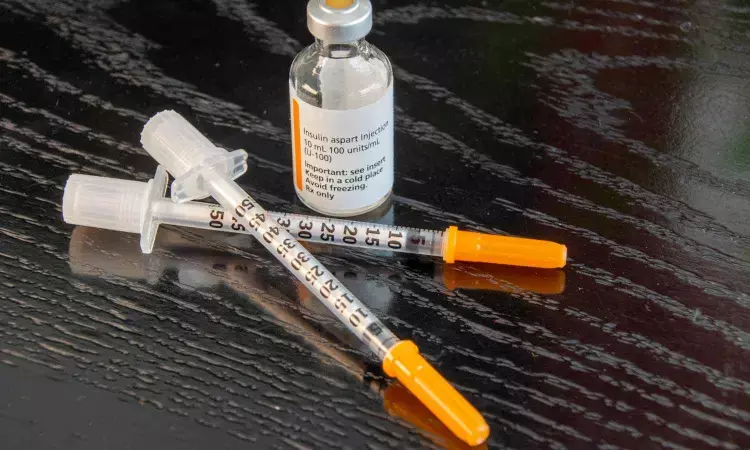- Home
- Medical news & Guidelines
- Anesthesiology
- Cardiology and CTVS
- Critical Care
- Dentistry
- Dermatology
- Diabetes and Endocrinology
- ENT
- Gastroenterology
- Medicine
- Nephrology
- Neurology
- Obstretics-Gynaecology
- Oncology
- Ophthalmology
- Orthopaedics
- Pediatrics-Neonatology
- Psychiatry
- Pulmonology
- Radiology
- Surgery
- Urology
- Laboratory Medicine
- Diet
- Nursing
- Paramedical
- Physiotherapy
- Health news
- Fact Check
- Bone Health Fact Check
- Brain Health Fact Check
- Cancer Related Fact Check
- Child Care Fact Check
- Dental and oral health fact check
- Diabetes and metabolic health fact check
- Diet and Nutrition Fact Check
- Eye and ENT Care Fact Check
- Fitness fact check
- Gut health fact check
- Heart health fact check
- Kidney health fact check
- Medical education fact check
- Men's health fact check
- Respiratory fact check
- Skin and hair care fact check
- Vaccine and Immunization fact check
- Women's health fact check
- AYUSH
- State News
- Andaman and Nicobar Islands
- Andhra Pradesh
- Arunachal Pradesh
- Assam
- Bihar
- Chandigarh
- Chattisgarh
- Dadra and Nagar Haveli
- Daman and Diu
- Delhi
- Goa
- Gujarat
- Haryana
- Himachal Pradesh
- Jammu & Kashmir
- Jharkhand
- Karnataka
- Kerala
- Ladakh
- Lakshadweep
- Madhya Pradesh
- Maharashtra
- Manipur
- Meghalaya
- Mizoram
- Nagaland
- Odisha
- Puducherry
- Punjab
- Rajasthan
- Sikkim
- Tamil Nadu
- Telangana
- Tripura
- Uttar Pradesh
- Uttrakhand
- West Bengal
- Medical Education
- Industry
Weekly Insulin Efsitora Noninferior to Daily Insulin Degludec for Type 2 Diabetes Management: Phase 3 Trial

USA: A recent clinical trial (QWINT-2) has revealed that efsitora, a new once-weekly insulin, is as effective as the well-established once-daily insulin degludec in managing type 2 diabetes for patients who have never previously been treated with insulin. The finding, published in The New England Journal of Medicine, could offer a significant advancement in the treatment options available for newly diagnosed patients.
Type 2 diabetes management often involves a combination of lifestyle changes and medication, with insulin therapy becoming a consideration for patients who struggle to maintain adequate blood glucose control through oral medications alone. Traditionally, insulin degludec, known for its long-acting properties and daily administration, has been a common choice. However, the introduction of efsitora—a novel, once-weekly insulin—promises the convenience of less frequent dosing while potentially offering similar glycemic control. Its safety and efficacy data have been primarily confined to small-scale Phase 1 and Phase 2 trials.
For this purpose, Carol Wysham, the MultiCare Rockwood Center for Diabetes and Endocrinology, Spokane, WA (C.W.), and colleagues conducted a 52-week, Phase 3, parallel-design, open-label, treat-to-target trial involving adults with type 2 diabetes who had not previously received insulin. Participants were randomly assigned in a 1:1 ratio to receive either efsitora or degludec.
The primary endpoint was the change in glycated hemoglobin levels from baseline to week 52, with the hypothesis that efsitora would be noninferior to degludec (noninferiority margin: 0.4 percentage points). Secondary and safety endpoints included changes in glycated hemoglobin levels in subgroups of participants using or not using glucagon-like peptide-1 (GLP-1) receptor agonists, the percentage of time glucose levels were within the target range of 70 to 180 mg per deciliter from weeks 48 through 52, and the incidence of hypoglycemic episodes.
The study led to the following findings:
- A total of 928 participants underwent randomization (466 to the efsitora group and 462 to the degludec group).
- The mean glycated hemoglobin level decreased from 8.21% at baseline to 6.97% at week 52 with efsitora (least-squares mean change, −1.26 percentage points) and from 8.24% to 7.05% with degludec (least-squares mean change, −1.17 percentage points), findings that showed noninferiority.
- Efsitora was noninferior to degludec for the change in the glycated hemoglobin level in participants using and not using GLP-1 receptor agonists.
- The percentage of time that the glucose level was within the target range was 64.3% with efsitora and 61.2% with degludec (estimated treatment difference, 3.1 percentage points).
- The rate of combined clinically significant or severe hypoglycemia was 0.58 events per participant-year of exposure with efsitora and 0.45 events per participant-year of exposure with degludec (estimated rate ratio, 1.30).
- No severe hypoglycemia was reported with efsitora; six episodes were reported with degludec.
- The incidence of adverse events was similar in the two groups.
"In adults with type 2 diabetes who had not previously been treated with insulin, once-weekly efsitora demonstrated noninferiority to once-daily degludec in lowering glycated hemoglobin levels," the researchers concluded.
Reference:
DOI: https://www.nejm.org/doi/full/10.1056/NEJMoa2403953
Dr Kamal Kant Kohli-MBBS, DTCD- a chest specialist with more than 30 years of practice and a flair for writing clinical articles, Dr Kamal Kant Kohli joined Medical Dialogues as a Chief Editor of Medical News. Besides writing articles, as an editor, he proofreads and verifies all the medical content published on Medical Dialogues including those coming from journals, studies,medical conferences,guidelines etc. Email: drkohli@medicaldialogues.in. Contact no. 011-43720751


